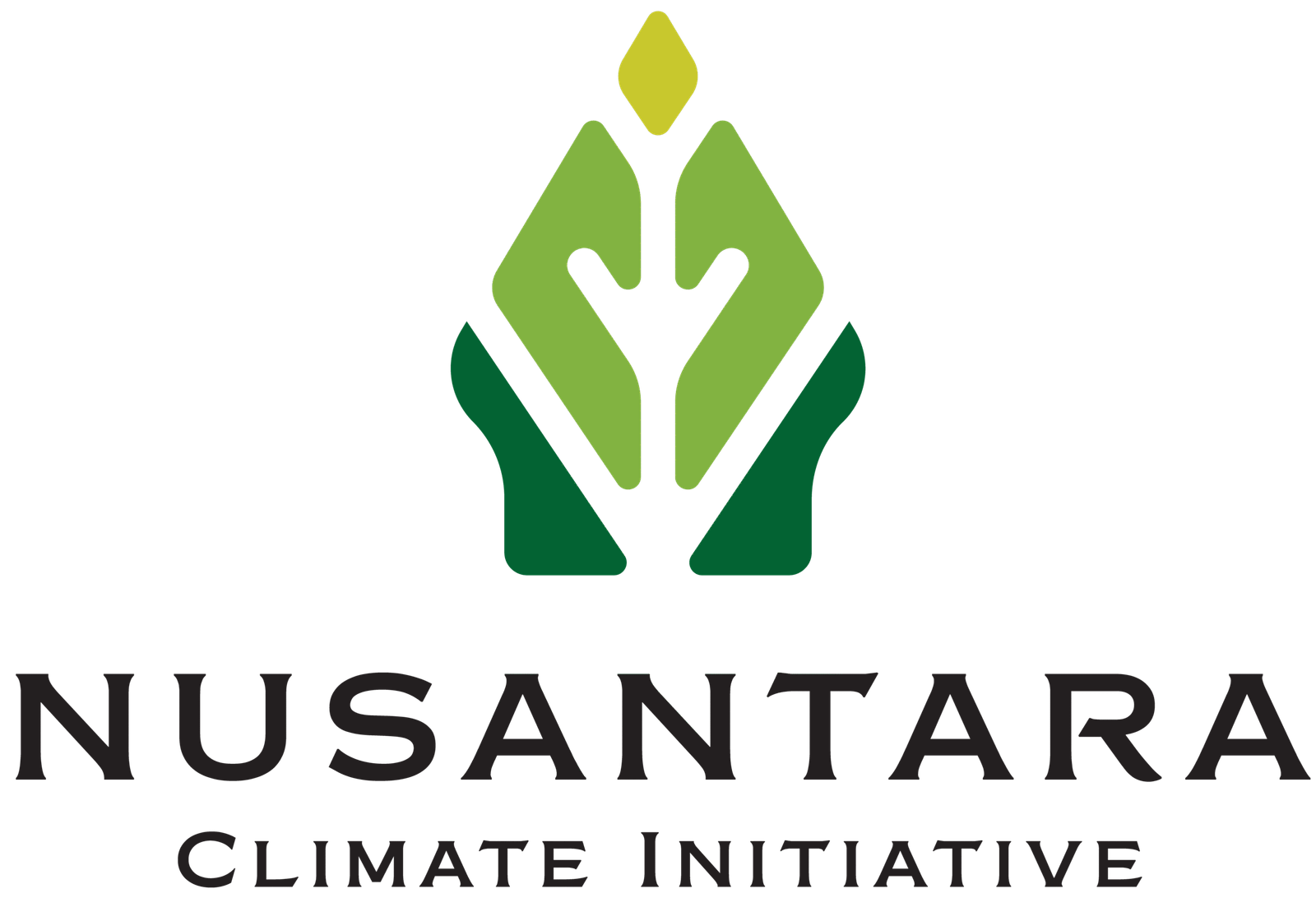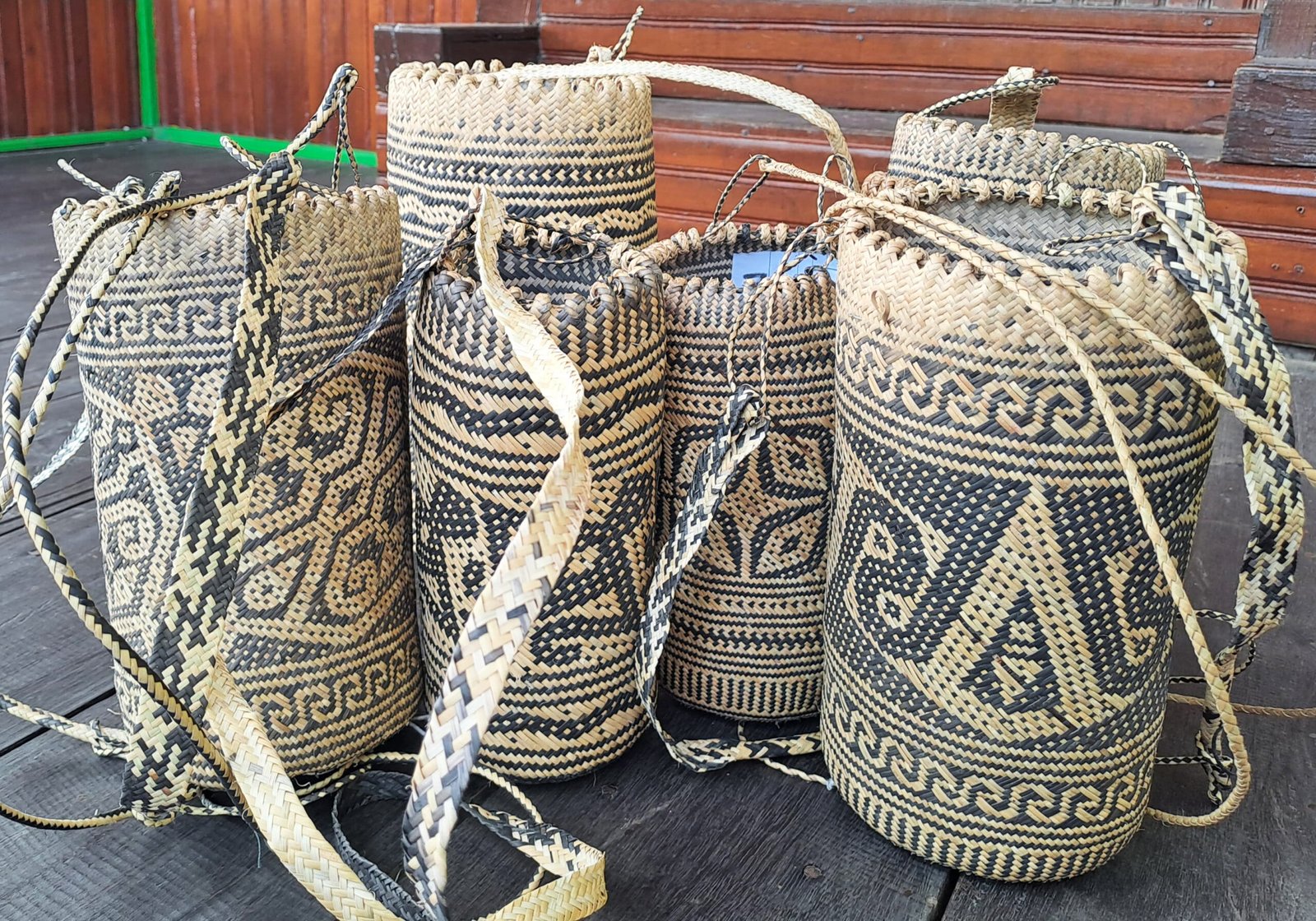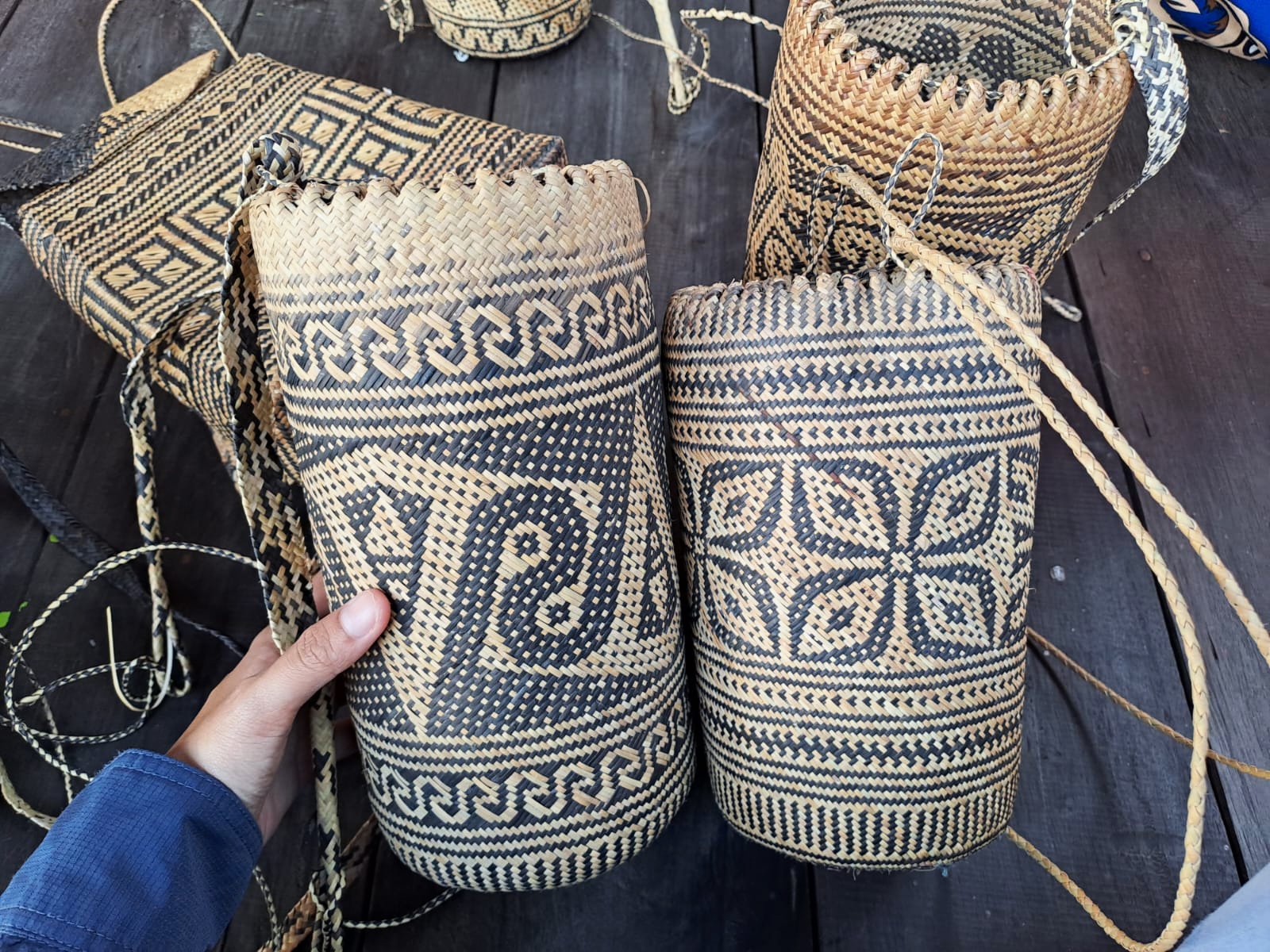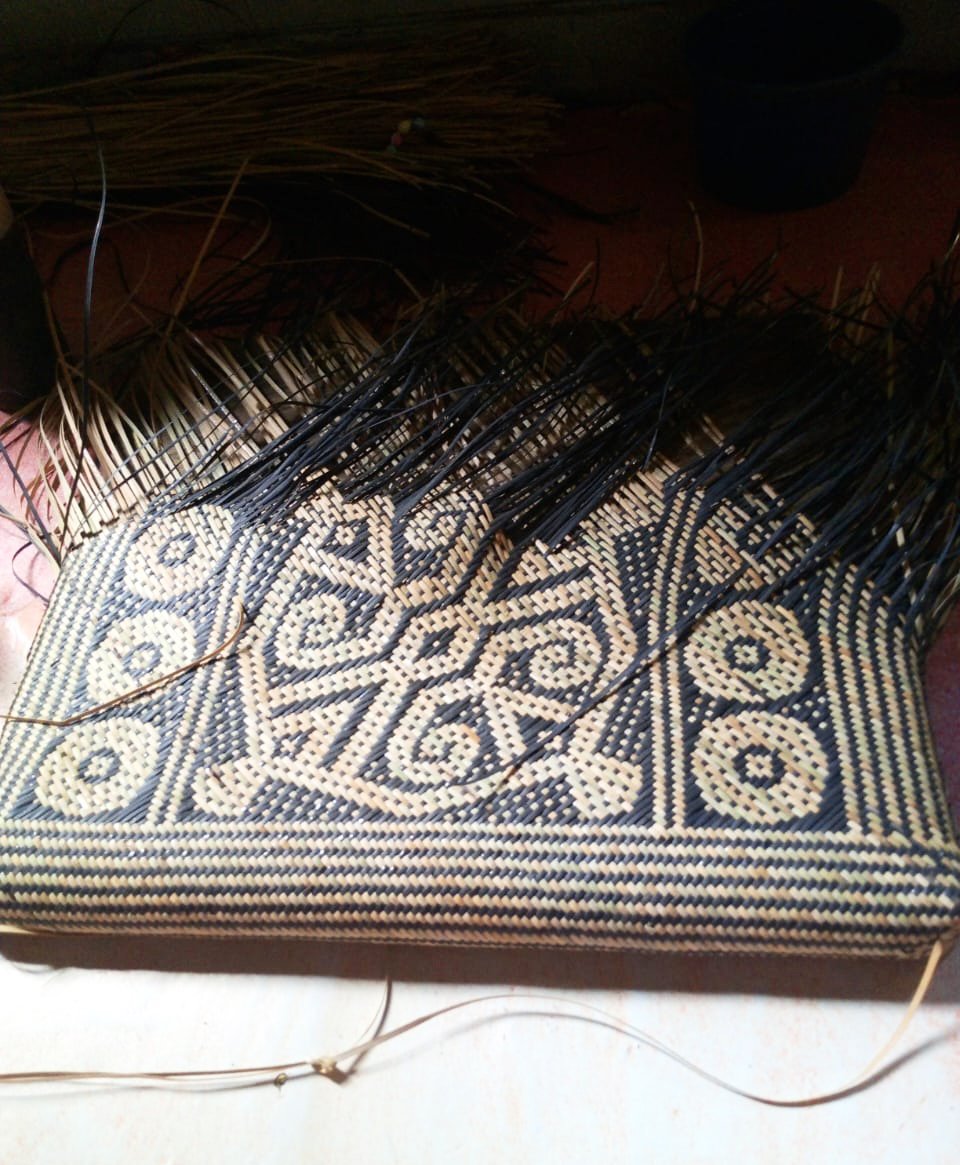Weaving Culture and Climate Action: The Story of Anjat
Anjat, a traditional woven bag from the Dayak community, is much more than a functional item; it is a cultural artifact steeped in indigenous wisdom and sustainable practices. Used traditionally for carrying daily necessities or participating in rituals, anjat represents a deep connection between humans and nature. Each motif etched on anjat tells a story, often inspired by the flora, fauna, and philosophy of the Dayak people, with designs varying across the many sub-tribes.
In the heart of Borneo, the Dayak community continues to depend on forests for their livelihood, drawing not only timber but also non-timber resources like medicinal plants, fish, and rattan. The latter forms the core material for crafting anjat, embodying a harmonious balance between utilizing and preserving nature—a value that resonates deeply with the Nusantara Climate Initiative (NCI).
Anjat and Its Connection to Forests
In the village of Sungai Lunuk, within PT. Belayan River Timber’s concession, the crafting of anjat showcases the intricate bond between the Dayak people and their forest ecosystems. According to Ibu Ungab, a local artisan, the motifs on anjat reflect the community’s reliance on and reverence for forests. Whether used to carry forest produce, for cultural rituals, or as a symbol of identity, anjat underscores the importance of maintaining healthy ecosystems.
The Dayak community recognizes that the degradation of forests directly threatens their cultural and economic lifelines. This understanding aligns with the global principles of Sustainable Development Goals (SDGs), particularly SDG 15 on “Life on Land” and SDG 12 on “Responsible Consumption and Production.”
A Sustainable and Eco-Friendly Alternative
Crafted primarily from rattan, with supporting materials like local leaves and natural dyes, anjat is a testament to sustainable craftsmanship. The production process itself is eco-friendly: rattan is boiled with black soil to achieve desired hues, while natural dyes from “Daun Kayu” leaves are used for patterns. This artisanal method ensures that anjat remains a biodegradable and environmentally friendly alternative amidst rising demand for sustainable fashion.
In an era where sustainability is increasingly sought after, anjat stands out as an emblem of slow fashion, promoting ethical production and environmental consciousness. Its 90% organic composition makes it a viable eco-friendly alternative to synthetic bags, positioning it within the global trend of sustainable lifestyles.
Opportunities for Diversification and Community Empowerment
Currently, the traditional cylindrical or tubular shape of anjat is primarily used for functional purposes, such as carrying fish or daily necessities. However, market demands are evolving, and diversification of designs could help broaden its appeal. Anjat could be adapted to modern needs, transforming into laptop bags, tote bags, or other contemporary accessories.
Such diversification has already begun in Sungai Lunuk, thanks to initiatives from the community development team at PT. Belayan River Timber. For example, under guidance from local stakeholders, artisans like Ibu Ungab have successfully created customized anjat designs for specific buyers. These efforts not only enhance the value of the product but also provide artisans with new challenges and opportunities for growth.
Empowering local communities through training and market access will further amplify the impact of anjat. By involving stakeholders such as government, private sector, and civil society, the marketing of these products can expand, ensuring sustainable income streams for Dayak artisans.
A Broader Perspective on Indigenous Rights and Global Context
Anjat symbolizes the rich cultural heritage and sustainable practices of the Dayak people. Promoting such indigenous crafts highlights the importance of preserving not only the physical forests but also the cultural knowledge embedded within these communities. Supporting Dayak artisans ties into broader global movements for indigenous rights, including the UN Declaration on the Rights of Indigenous Peoples (UNDRIP), and contributes to the SDGs by fostering economic resilience, gender equality, and cultural preservation.
Committed to the principles of Nature-Based Solutions (NbS), NCI supports the preservation of Dayak traditions like anjat while working toward forest conservation. These efforts honour indigenous rights and align with global sustainability goals.
Author: Aslama Nuraulia; Muhammad Sofiyuddin
Copy Edit: Yessi Agustina; Barakalla Robyn
#NusantaraClimateInitiative #NatureBasedSolutions #CommunityEmpowerment #Conservation #DayakCulture #SustainableCraft #CulturalHeritage #IndigenousWisdom #EcoFriendlyLiving #ClimateAction




Stay In Touch